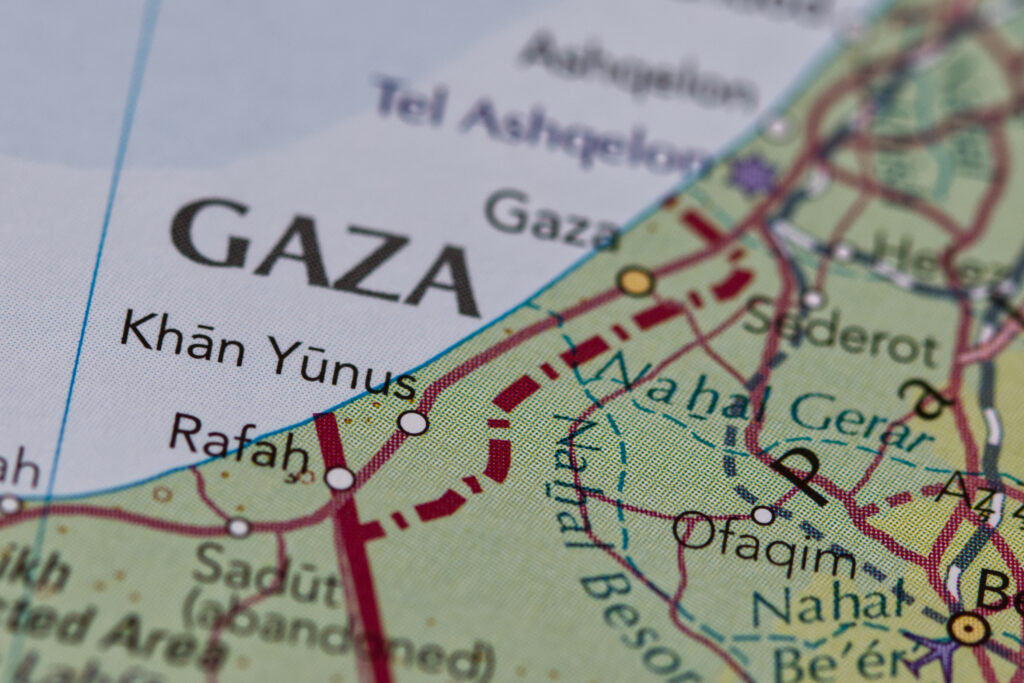
On November 7th, Christian Lindmeier, spokesperson for the World Health Organization, reported that 160 healthcare workers have died in the service of patients in Gaza (1). The WHO also reports dwindling supplies, overwhelmed morgues, packed wards and bombing near hospitals. Ambulance services are unable to safely bring patients to the hospitals and neither can patients safely leave. These injustices are contrary to the natural disposition of clinicians. This disposition needs to progress from quiet discontent to vocal protest.The physician oath to do no harm is the cornerstone of ethical medical practice across the world and throughout the history of medicine. Indeed, the special status of physicians in our society springs from this global and historical understanding that the physician is a force for beneficence. This beneficence begins with the patient and extends to society at large.
The AMA’s Declaration of Professional Responsibility states that “our profession must reaffirm its historical commitment to combat natural and man-made assaults on the health and well-being of humankind” and that “Humanity is our patient”(2).
Palestinians in Gaza are part of our humanity. The humanitarian crisis in Gaza is a healthcare crisis that demands physician action. As stated by Dr. Wynia in a recent JAMA Viewpoint, “our profession must remain the living embodiment of religious injunctions to treat every life as sacred, because to save a single life is to save an entire world”(3). The suggestion that there are “sides” to be chosen or an option of silence does not apply to physicians. Physicians have a responsibility to bypass preconceived notions and recognize that what is happening now is unacceptable(4). With this responsibility in mind, it becomes clear that the ongoing crisis in Gaza requires every physician’s attention and vocal denunciation. The crisis in Gaza is every physician’s crisis.
Prior to October 2023, there were 36 hospitals and two medical schools (Al-Azhar University Gaza and Islamic University Gaza) that served Gaza and its 2.2 million person population. Due to the Israeli attacks, at least 22 of the hospitals are nonfunctional and both medical schools have been destroyed(5). The hospitals that remain are at their breaking point, where staff are overwhelmed, supplies and fuel are running low. Moreover, the remaining hospitals often serve as a shelter for the internally displaced.
Al-Ahli Baptist Hospital and Al-Quds hospital were attacked. Amongst the hospitals that were attacked include children’s hospitals, specialty hospitals, and international relief hospitals(6). Children’s hospitals like Al-Rantisi were bombed, forcing the evacuation of the only children’s cancer center in Gaza. An adult palliative care and cancer center was bombed(7). Gaza’s only psychiatric hospital was attacked and forced to shut down on the November 5th attacks, leaving no access to mental healthcare in the entire region. Al Awda and Indonesian Hospital were also attacked. 13 UNRWA health centers are now non-operational – these once provided medical care for pregnant and postpartum women(6).
Al-Shifaa Hospital, Gaza’s largest and most specialized, lost power as back-up generators ran out of fuel resulting in six immediate patient deaths, two of which were NICU babies(7). Thirty-nine NICU babies could not be on life-sustaining ventilators and thermoregulators and needed to be ventilated by hand with ambu-bags, which is unsustainable with the lack of sufficient staff. While legal scholars can debate the presence or absence of probable cause in the military attack on Al-Shifaa hospital(8), physicians must condemn this action in unison, for a hospital should be a place of healing, not carnage.
The destruction of the healthcare infrastructure has ramifications beyond the physical, it is not merely the attacks on hospitals, clinics, and ambulances that make it difficult for patient care. Attacks on healthcare workers mean that the knowledge and skillset to take care of Palestinians is no longer readily available. Destroying both of the medical schools prevents the potential to develop the next generations of Gaza’s physicians.
No longer exempt from the shrapnel of warfare, it has become both dangerous and functionally impossible for healthcare workers to care for injured civilians in Gaza.
The healthcare community must fulfill its ethical obligation and denounce attacks on healthcare facilities in Gaza. The healthcare community must demand safety of all civilians. We implore our fellow physicians to loudly, clearly, without prejudice or hesitation, call for the immediate halt of:
1) Loss of civilian life
2) Destruction of healthcare infrastructure
3) Death of healthcare professionals
Failure to adhere to these elementary principles of being a physician threatens to kill the soul of medicine.
Dr. Deena Kishawi is Chief Obstetrics and Gynecology Resident at Ascension St. Joseph Hospital, Chicago IL
Dr. Omar Jamil is Chief Gastroenterology Fellow at the University of Chicago, Chicago IL
Dr. Omar Hussain is Clinical Assistant Professor of Medicine at Loyola University School of Medicine and Gottlieb Memorial Hospital
Dr. Umar Shakur is Chair of Cardiovascular Medicine at Insight Chicago Hospital and Medical Center.